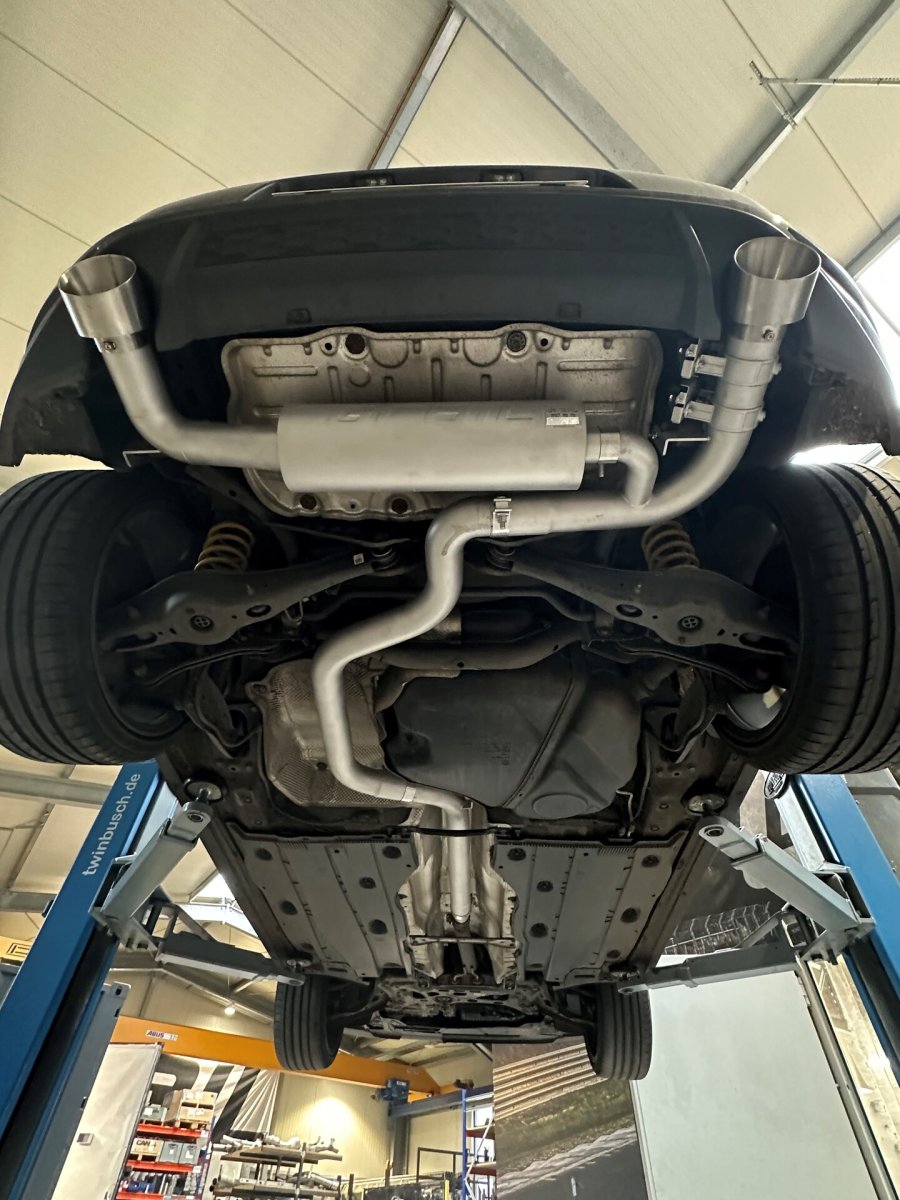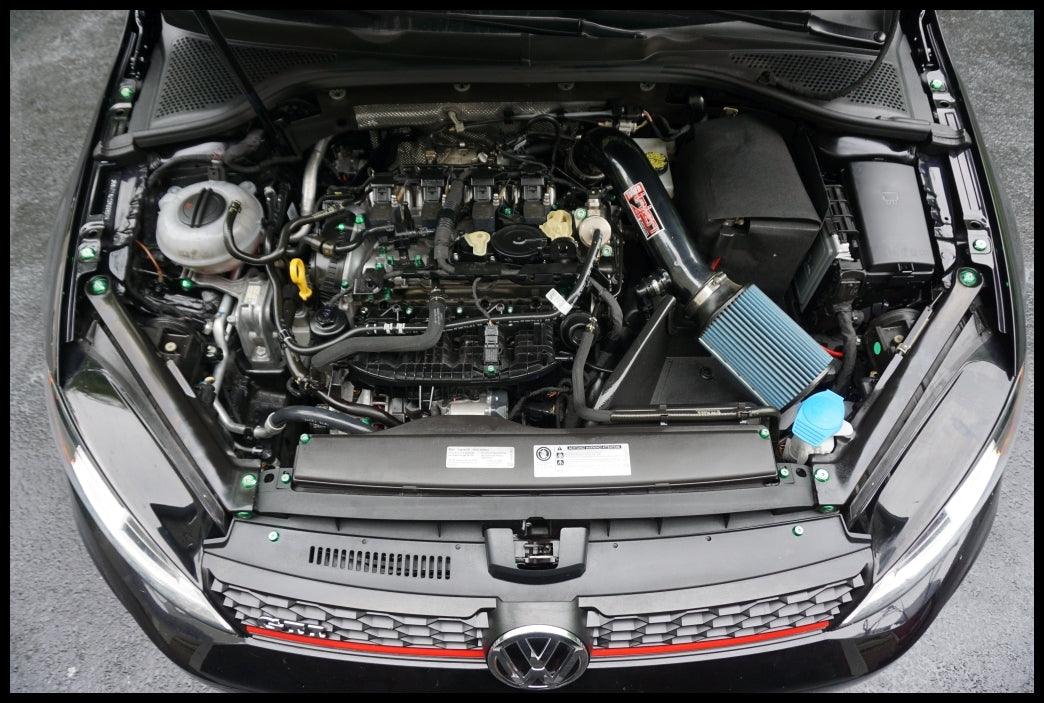The Pros and Cons of the Golf 7 GTI Engine: Is It the Right Choice for You?
The Pros and Cons of the Golf 7 GTI Engine: Is It the Right Choice for You?
Blog Article
Your Overview to the Golf 7 GTI Engine: Reliability and Upgrades
The Golf 7 GTI, equipped with its 2.0-liter turbocharged inline-four engine, represents an equilibrium of efficiency and integrity that charms to enthusiasts and day-to-day chauffeurs alike. Understanding the elements that add to its reliability, along with prospective concerns and their remedies, is important for making the most of the driving experience. Moreover, exploring different efficiency upgrades can significantly enhance both power and effectiveness. The question continues to be: what certain upgrades can transform your GTI right into a genuinely extraordinary automobile while guaranteeing its longevity?
Summary of the Golf 7 GTI Engine
The heart of the Golf 7 GTI is its 2.0-liter TSI engine, a turbocharged four-cylinder that provides an outstanding mix of power and efficiency. This engine produces a robust 220 horsepower and 258 lb-ft of torque, permitting the vehicle to speed up from 0 to 60 miles per hour in just 5.6 seconds, showcasing its flashy personality. The turbocharged layout not only improves efficiency but also maximizes fuel efficiency, making it a practical option for everyday driving.
Incorporating innovative modern technology, the engine features straight gas shot, which boosts combustion performance and reduces discharges. Furthermore, the Golf 7 GTI is equipped with either a six-speed manual or a six-speed DSG dual-clutch automated transmission, offering motorists with the versatility to select their preferred driving style. The lorry's front-wheel-drive design, combined with a well-tuned suspension, makes certain agile handling and a responsive driving experience.
Engine Reliability Elements
Reliability is an important aspect of any type of performance-oriented lorry, and the Golf 7 GTI's engine is no exemption. Several variables add to the overall reliability of this highly regarded powerplant, which is necessary for both daily driving and perky efficiency.
First Of All, the Golf 7 GTI is equipped with a durable 2.0-liter turbocharged inline-four engine, understood for its reliable style and solid design. This engine includes a forged steel crankshaft and light weight aluminum engine block, which provide premium stamina and toughness while decreasing weight.
Secondly, normal upkeep plays an essential function in boosting engine reliability. Adhering to the supplier's preferred service periods, making use of high-grade lubes, and changing vital components such as trigger filters and plugs can considerably extend engine life.
Additionally, the high quality of gas used can also impact reliability. Premium gas is advised to make sure ideal efficiency and minimize the risk of knocking or ignition.
Lastly, the lorry's digital administration system continuously checks engine criteria, permitting for real-time changes to optimize efficiency and efficiency while safeguarding against potential problems. Collectively, these aspects emphasize the Golf 7 GTI engine's track record for dependability amongst enthusiasts and day-to-day vehicle drivers alike.
Common Concerns and Solutions
The Golf 7 GTI, while commemorated for its efficiency, is not without its challenges. Among one of the most regularly reported concerns are engine oil usage and turbocharger failures, which can considerably affect car reliability. Understanding these typical troubles and their options is crucial for keeping ideal engine performance.

Engine Oil Usage
While many lovers appreciate the efficiency of the Golf 7 GTI, engine oil consumption can become a remarkable issue. Proprietors might observe that their lorries call for more regular oil top-ups than expected, typically credited to various elements integral in the engine's layout and procedure.
One common issue is the engine's straight gas shot system, which can lead to enhanced oil consumption because of the combustion procedure. In addition, the usage of high-performance driving routines can worsen oil burn-off, particularly under aggressive throttle problems. Vehicle drivers may also experience oil leakages from gaskets and seals, which can add to minimized oil degrees.
To address oil intake, regular maintenance is important. Regular oil adjustments making use of top quality synthetic oil can help maintain optimum engine efficiency and long life. Checking oil levels and performing timely checks can avoid possible problems prior to they rise. If excessive intake continues, it may be recommended to consult a specialist specialist to analyze the engine for possible inner problems, such as used piston rings or valve seals. Adopting these techniques can significantly alleviate worries concerning oil consumption in the Golf 7 GTI, ensuring a more enjoyable and reputable driving experience.
Turbocharger Failings
Turbocharger failures can considerably influence the efficiency of the Golf 7 GTI, leading to lessened power and efficiency. Oil leaks frequently stem from used seals or damaged gaskets, which can lead to oil contamination and succeeding engine damages.
One more widespread trouble is wastegate failing, which can cause overboost or underboost problems. If left uncontrolled, this not only affects the car's efficiency however can likewise lead to serious engine damages. Upgrading to an extra robust wastegate can enhance reliability and efficiency.
Extreme shaft play suggests wear in the turbocharger's bearings, which can lead to a complete turbo failing. Checking boost pressure and paying attention for uncommon noises can aid discover this issue early.
To avoid turbocharger failures, normal upkeep, including oil changes and air filter replacements, is critical. In addition, buying high-grade aftermarket components might offer improved integrity and efficiency, eventually improving the driving experience of the Golf 7 GTI.
Efficiency Upgrades to Consider
What performance upgrades can absolutely raise the driving experience of a Golf 7 GTI? To release the full potential of this legendary warm hatch, numerous targeted adjustments can improve power, handling, and overall driving satisfaction.
One of the most reliable upgrades is a high-performance turbocharger. Replacing the supply system with an aftermarket alternative can considerably boost horsepower and torque, delivering an extra exhilarating velocity experience. Enhancing this upgrade with an efficiency intercooler assists preserve optimal temperatures, making sure regular power shipment.
Next, consider upgrading the exhaust system. A much less restrictive exhaust not just enhances engine performance yet additionally creates a much more aggressive sound that intensifies the automobile's stylish personality. Pairing this with a remapped ECU will certainly maximize gas distribution and ignition timing, additional increasing efficiency.
Suspension upgrades, such as flexible coilovers, can improve taking care of by decreasing the lorry's facility of gravity and reducing body roll. In addition, a collection of high-performance tires will certainly boost grip, permitting sharper cornering and enhanced overall stability.
With each other, these upgrades can change the Golf 7 GTI right into an extra thrilling and dynamic driving equipment, making every trip an extraordinary experience. golf 7 gti engine.
Suggested Maintenance Practices
Keeping the Golf 7 More Bonuses GTI engine needs interest to essential methods that guarantee ideal performance and durability. Regular oil modifications are necessary for engine health and wellness, while timely timing belt replacement is critical to avoid potential failings. Executing these maintenance techniques will help keep your vehicle running smoothly and successfully.
Routine Oil Adjustments
Regular oil adjustments are essential for the ideal efficiency and longevity of the Golf 7 GTI's engine. Keeping a regular oil adjustment schedule ensures that the engine operates smoothly and successfully. The recommended period for oil modifications is usually every 5,000 to 10,000 kilometers, depending upon driving conditions and the type of oil utilized.
Using high-grade artificial oil is essential as it gives superior lubrication and thermal security compared to standard oils. This is particularly vital for the Golf 7 GTI, which includes a turbocharged engine that produces higher operating temperatures. Routine oil adjustments assist to eliminate contaminants and sludge accumulation, which can compromise engine efficiency and result in premature wear.
Additionally, fresh oil enhances fuel effectiveness and minimizes dangerous emissions, adding to a cleaner atmosphere. During the oil modification process, it is also recommended to replace the oil filter to guarantee ideal filtering and stop any type of debris from going into the engine. Abiding by these practices not just aids preserve the engine's honesty however likewise maintains the value of the car, making regular oil changes an important aspect of liable GTI possession.
Timing Belt Replacement
The timing belt is a crucial component of the Golf 7 GTI's engine, responsible for integrating the rotation of the crankshaft and camshaft. This synchronization is crucial for optimal engine efficiency and effectiveness. If the timing belt fails, it can cause devastating engine damage, making prompt replacement vital.

When preparing a timing belt replacement, it is advisable to likewise replace the water pump and tensioner. These components function in combination with the timing belt and often experience similar wear, guaranteeing ideal efficiency and long life. Utilizing OEM parts is advised for their integrity and compatibility with the Golf 7 GTI's engine.
Professional setup is very encouraged, as incorrect installment can result in severe engine malfunctions. Regular upkeep of the timing belt not just secures the integrity of the engine however likewise boosts the general driving experience of the Golf 7 GTI. golf 7 gti engine. Prioritizing this task aids preserve car dependability and performance with time
Aftermarket Parts and Modifications
Many lovers turn to aftermarket parts and adjustments to improve the performance and visual appeals of the Golf 7 GTI. These upgrades can substantially improve the vehicle's responsiveness, handling, and general driving experience. Popular adjustments include high-performance air consumptions, exhaust systems, and intercoolers, which can increase horse power and torque by enhancing air intake and exhaust circulation.
Suspension upgrades are likewise prevalent, with options ranging from lowering springtimes to totally flexible coilover packages that boost experience high quality and cornering ability. Upgraded brakes, including why not find out more performance pads and blades, can supply much better stopping power, making sure safety and security and control during spirited driving.
Visual adjustments, such as aftermarket wheels, body sets, and personalized lights, allow proprietors to customize their lorries while keeping a stylish look. Engine adjusting, whether with ECU remapping or standalone engine monitoring systems, can unlock additional performance potential, making the GTI a lot more thrilling to drive.
While aftermarket modifications can produce substantial benefits, it's essential to choose respectable brands and take into consideration the prospective influence on service warranty and reliability. Appropriate installment and tuning are essential to ensure the durability of the vehicle while enjoying the enhancements.
Enhancing Gas Efficiency
Improving fuel performance in the Golf 7 GTI can result in substantial price financial savings and a lowered environmental influence. Accomplishing much better fuel economic climate requires a combination of driving habits, maintenance practices, and tactical alterations.
One effective approach is adopting a smooth driving style, Go Here staying clear of quick velocity and heavy braking, which can dramatically minimize fuel intake. Maintaining optimal tire pressure is also important; under-inflated tires can enhance rolling resistance, bring about lowered efficiency. Regular servicing, consisting of engine tuning and air filter replacements, makes certain that the engine runs at peak efficiency, further enhancing fuel economic situation.
For those seeking upgrades, think about an efficiency song that focuses on efficiency as opposed to sheer power. Eco-mode setups, if offered, can readjust throttle response and change indicate take full advantage of gas cost savings. Additionally, lightweight aftermarket wheels can decrease weight and improve efficiency without compromising efficiency.
Finally, employing wind resistant improvements, such as a front splitter or rear spoiler, can lower drag at higher speeds, adding to better fuel economy. By carrying out these techniques and modifications, Golf 7 GTI owners can delight in improved gas performance while keeping the lorry's spirited driving features.
Final Thought
In verdict, the Golf 7 GTI engine exhibits a mix of efficiency and dependability, driven by a well-engineered 2.0-liter turbocharged inline-four. Various efficiency upgrades and aftermarket modifications can boost driving experience while maintaining dependability.
The Golf 7 GTI, equipped with its 2.0-liter turbocharged inline-four engine, stands for a balance of efficiency and reliability that charms to lovers and day-to-day vehicle drivers alike. Regular oil adjustments using high-grade synthetic oil can help maintain ideal engine performance and longevity.Normal oil modifications are crucial for the optimal efficiency and longevity of the Golf 7 GTI's engine. Regular maintenance, including engine tuning and air filter replacements, makes sure that the engine operates at peak performance, additionally boosting fuel economy.

Report this page